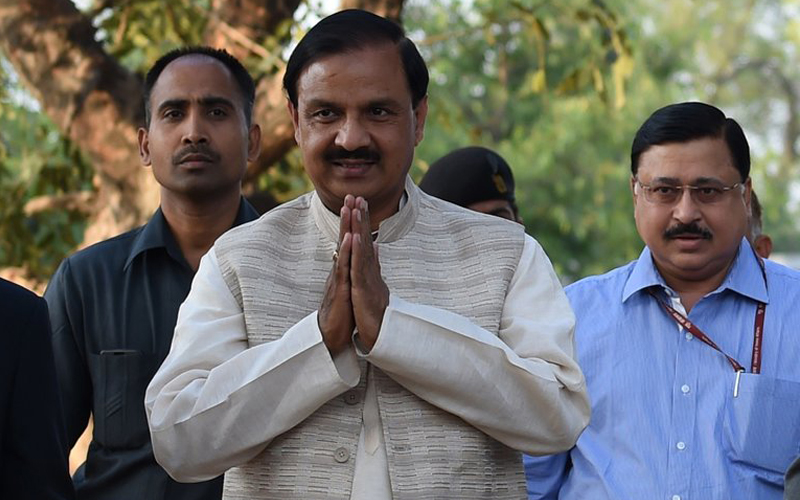I was born and raised in Mumbai, India. Mumbai, they say, is the city of dreams where the impossible becomes possible.Each year, when I go back home to visit my family and friends, we take a mini trip somewhere within the country, both to satisfy my craving for travelling and to spend quality time with each other. On a recent trip home, instead of taking a fancy holiday, I decided to explore the underbelly of my city.
For two weeks, I was a volunteer at Kshamata, an NGO that works to rehabilitate victims of human trafficking and domestic abuse. Emotional trauma, loss of identity and self-respect, risks of contracting STDs, and falling prey to drug addiction are among the problems these women face.Even for the fortunate few who manage to escape the unsavoury clutches, reintegration into society is difficult as they are looked down on, not offered a decent source of living and are forced to go down the same road, ending up as human slaves again.
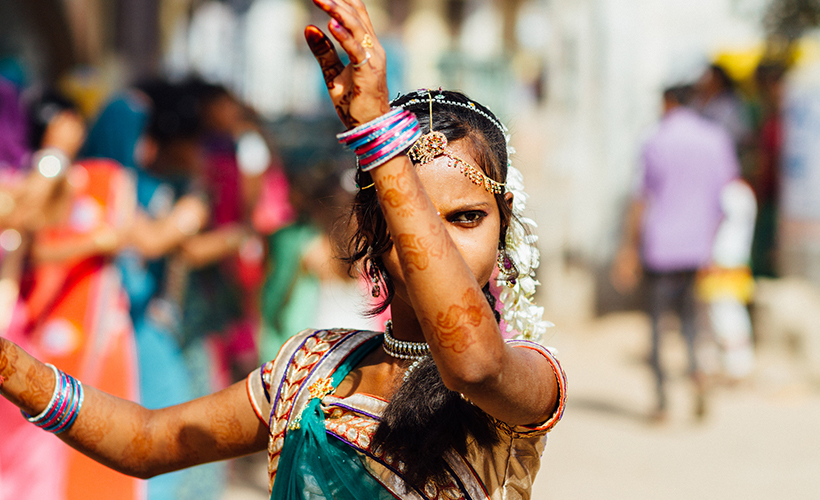
Run primarily by women since 2011, Kshamata conducts vocational training activities and courses for women who are caught in the web of human trafficking, with the hopes of providing them with a source of income and a chance at independence. Post-training, the NGO also assists them in finding suitable jobs and a home of their own, functioning as a support system for them to fall back on.
Kshamata works with a series of government homes across the city. If a woman (above the age of 18), who has the necessary clearance from a court of law to live independently, desires to move out from the state shelter, she can do so by integrating with Kshamata. The NGO looks after all the documentation, provides necessary counselling, and enables the woman to receive training that suits her interest.
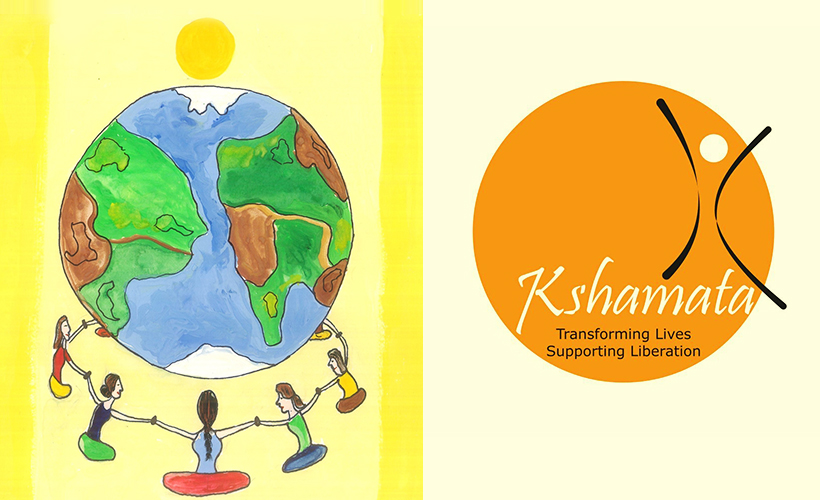
Volunteering at Kshamata was, to say the least, an eye-opener; it’s a side of my city I had never experienced or seen. What I thought was my chance to do my bit for society turned out to be a series of lessons about life and humanity.
This is a brief recollection of my experience.
Note All the names and ages, except for those of the volunteers, have been changed to protect identities.
Day One at Kshamata
On the first day, I was assigned to look after a batch of young women between the ages of 18-22, and assist them in any way possible. When I arrived, the girls were busy preparing a huge batch of chocolates, one of various skills that are taught at Kshamata, to send over to a client. After they had delivered the last of the chocolates, I sat down to talk to them.
Most of them, I realised, had been separated from their families at an early age due to various incidences of abuse and grew up in government homes in different parts of the city. After turning 18, they took the decision to be a part of Kshamata to receive efficient training skills. Some of them live independently, in homes provided by the NGO, while the ones who are still not confident to be on their own live at the NGO. Most of them have decent jobs earning a sufficient living, and some work as trainers at Kshamata.
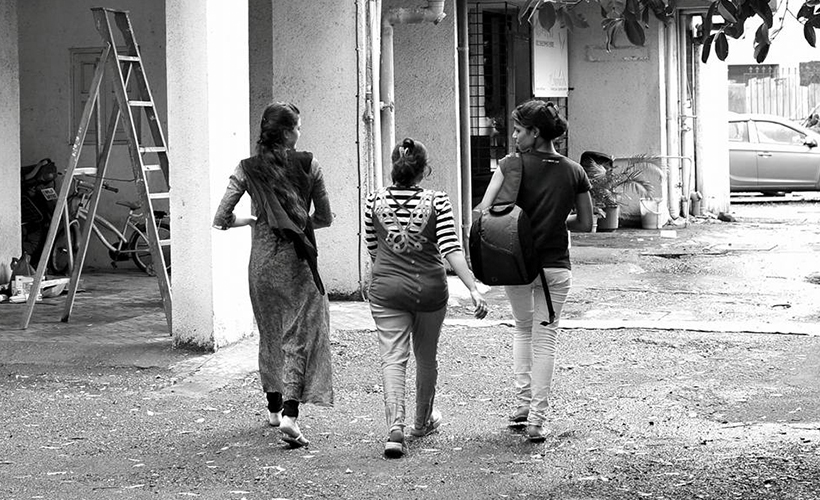
“Do you like it here?” I asked Seema, a 20-year-old who is in charge of bookkeeping for the organisation.
“Of course. For seven years, after I lost my parents, I lived in a government home. I was lucky to have been well looked after but I still had to stick to a routine that was decided by my wardens. I always craved for independence and finally, I found that freedom here. I currently work as an English teacher at several homes for minor girls, and earn about USD150 a month,” she told me. “That helps pay my rent and manage my daily utilities, and enables me to pursue an education.”
She continued, “You know didi (elder sister), it’s a tough world out there and I want to be able to support myself.”
I sat there dumbfounded. At 20, I was living with my parents, attending university and didn’t earn a penny for myself. Going into this experience, I had expected to be the life lesson coach for the girls. Instead, I was bowled over by this young woman who had gone through times much more difficult than I could imagine, yet stands strong as an example to many.
Out on the field
As we entered the barren and unkempt common room, a hundred pairs of dead eyes turned to stare at us. The atmosphere in the room was that of misery and loss.
After seeing the relatively happy environment at Kshamata’s headquarters, this was something I was not prepared for. I was at a centre in an undisclosed location where women above 18, who are victims of trafficking, are given shelter by the government until a final statement for their release is handed over by a court of law. I was there to help conduct free anaemia check-ups.
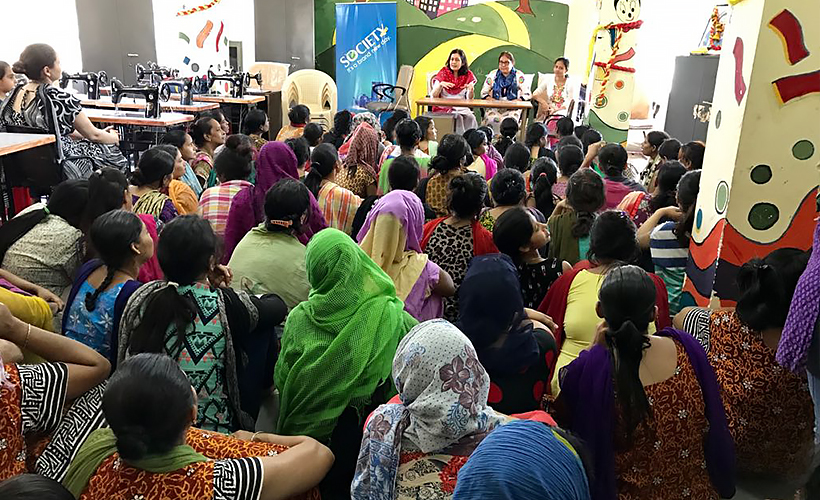
Despite my general feeling of helplessness, I put on my best smile and spoke to the women there, explaining about anaemia and iron levels in blood, among other medical terms related to what we were there to do. I was just about to ask one of the women to join the doctors in the adjoining room when a face turned toward me. She said, “We have done enough medical tests already. I do not want another needle inside my body.”
“Let it go, Nafisa,” the field coordinator, the enigmatic Pramila Sharma, whispered in my ear. “They have been through hell and back. We can help as much as we want but let them have the ultimate say. They need that to take back control of their lives.”
I decided to take a break. I walked outside with tears in my eyes. What gives anyone the right to treat another human being as an object, to be sold? To break them down to a level where they can never trust another person again?
I don’t really know what my contribution was that day, but at the end of it, I was just thankful for the life I have lived so far. Suddenly, my problems didn’t seem like much.
What’s wrong with dancing?
After that experience, I was ready to wave goodbye to my volunteering activities. But the supportive staff at Kshamata encouraged me stay on.
A couple of days later, we headed out for another field visit, once again to a centre that aids victims of human trafficking. This time, my task was to assist the ladies with some tailoring and embroidery work for an order that the organisation had received. During tea break, I stepped out to have a few quiet moments when one of the girls joined me.
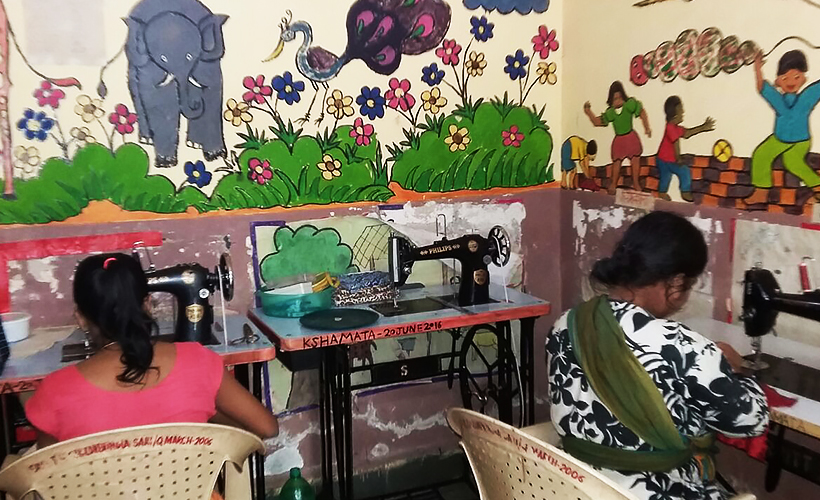
“Have you ever sat in an aeroplane before?” she asked me, her beautiful face filled with curiosity. I nodded. She went on to tell me that to reach her home, she would need to board a flight but she wasn’t sure if she would make it.
“What do you plan to do back home?” I asked her.
Her reply was instant, “I will give dance performances. I like to dance.”
“Why? You’ve learnt so much here. Why not take up a job?”
“There is no job for me out there. Besides, what is wrong with dancing? When celebrities dance and perform, it’s an achievement. When I do it, it’s wrong! I don’t think there’s a problem with me. We need a change of perspective.”
What she said made sense. How is it that some sections in society have the freedom to do as they wish while others are looked down upon for the same actions or behaviour? Maybe, like she said, we need a change of perspective.
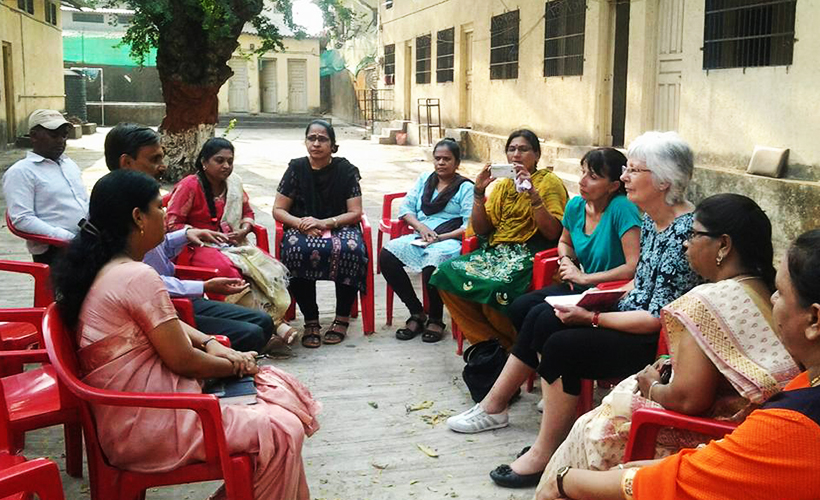
I came away with mixed emotions and the realisation that rehabilitating victims of human trafficking is certainly not an easy task. A lot of determination goes into helping to reintegrate them back into society, especially in a country like India where the number of victims is huge and help is limited. Awareness and acceptance can go a long way in helping individuals who are trapped in the vicious circle of human trade. The staff, social workers, organisations, and volunteers in this field of work have my utmost respect – they are truly making a difference.
You can support Kshamata by volunteering with them or purchasing their products. Contact them via their Facebook page or email [email protected].

